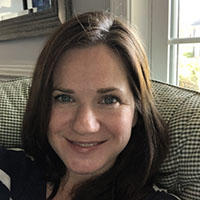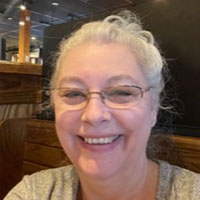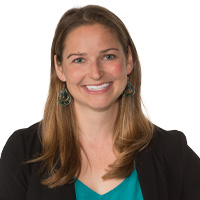Consortium for Resource Adoptive and Foster Family Training (CRAFFT) and Mutual Family Assessments (MFA) at VCU
Promoting the safety, permanency and well-being of Virginia children, and the review of kinship, foster and adoptive families.

CRAFFT helps shape stronger foster, adoptive, respite and kinship families (collectively referred to as resource families) in Virginia who serve local departments of social services (LDSS) to meet the needs of children and youth in Virginia’s child welfare system. VCU in 2023 marked its 20-year anniversary partnering with CRAFFT.
CRAFFT’s goals
- To increase the knowledge and skills of prospective and currently approved resource families through the development and delivery of standardized, competency-based, pre- and in-service training, as required by the local Department of Social Services (LDSS);
- To build capacity among LDSS to train and assess their own families.
About MFA
As of 2023 under the CRAFFT grant, VCU now partners with VDSS and Norfolk State University to support the Mutual Family Assessment (MFA), with an MFA supervisor on the VCU team overseeing a number of local Mutual Family Assessment specialists. These specialists are responsible for completing mutual family assessments for kinship, foster and adoptive families. MFA specialists provide critical support for prospective resource families as they embark on the journey of welcoming a young person into their home.
VCU-CRAFFT partnership
There is a CRAFFT coordinator assigned to each of the five Virginia Department of Social Services (VDSS) regions to respond to the pre-service and in-service training needs of LDSS resource families and LDSS staff. The two coordinators, serving the northern and central regions of Virginia, work at the VCU School of Social Work.
The VCU School of Social Work is uniquely positioned to provide these services in our community because of the school’s long-standing partnership with the Virginia Department of Social Services on various initiatives focused on workforce development for local child welfare agencies and broader community social services.
One of the school’s strategic priorities is to deliver on our commitment to solving social and health inequities in partnership with communities. CRAFFT supports direct delivery of crucial services to our communities' child welfare agencies by equipping resource kinship, adoptive and foster families to provide homes for and support to our communities' children.
Acknowledgment
Child welfare work goes back to the roots of social work. The VCU School of Social Work acknowledges the harmful role that systems have played in the lives of marginalized communities. As such we are committed to community engagement and racial and social justice. As a part of VCU’s commitment to racial justice, we recognize that individuals and families of color have a long history of being negatively impacted by the child welfare system. We aim to partner with communities in a way that values authentic engagement, prioritizes family preservation and a kin-first culture, and honors individual rights to self-determination. While centuries of harm cannot be undone, we commit to challenging the attitudes, beliefs, and practices that have negatively defined the child welfare system.
Services
Most of the training offered by CRAFFT is open to all LDSS resource families and staff in the coordinators’ assigned region. However, trainings are limited to resource families and LDSS staff from an agency/locality. The following are some of the services the CRAFFT coordinators offer in our communities:
CRAFFT assists LDSS agencies with increasing the pool of viable family-based placements by providing pre-service training to prospective resource families using a VDSS-approved curriculum that meets the required competencies outlined in Virginia’s foster care/adoption policy and guidance documents.
Parent Resources for Information, Development, and Education (PRIDE) core competency categories
CRAFFT provides pre-service training to prospective resource families using a VDSS-approved curriculum that meets the required competencies outlined in Virginia’s Guidance. VDSS' preferred curriculums is Parent Resources for Information, Development, and Education (PRIDE) and A Tradition of Caring (equivalent of PRIDE for kinship caregivers).
The PRIDE Model of Practice is designed to strengthen the quality of family foster care and adoption services by developing and supporting resource (foster and adoptive) families as partners in child protection. As a model of practice, PRIDE provides a standardized, consistent, structured framework for the competency-based recruitment, preparation, assessment, and selection of resource families, and for foster parent in-service training, ongoing professional development, support, and retention.
A child's early experience of being nurtured and developing a bond with a caring adult affects all aspects of behavior and development. When parents and children have strong, warm feelings for one another, children develop trust that their parents will provide what they need to thrive, including love, acceptance, positive guidance and protection. Research shows that babies who receive affection and nurturing from their parents have the best chance of healthy development. A child's relationship with a consistent, caring adult in the early years is associated later in life with better academic grades, healthier behaviors, more positive peer interactions and an increased ability to cope with stress.
This competency goes further than just meeting and addressing developmental delays (which may or may not exist); rather, it acknowledges that children in foster care have experienced trauma. The full scope of this competency encourages the foster parent to understand the impact of the child’s trauma and to meet them where they are emotionally, physically and mentally. This competency requires the foster parent to understand that a child’s emotional age often does not match their chronological age and that the child may need additional support to grow developmentally. It also further challenges the foster parent to explore and develop new parenting skills to meet the individual needs of the children placed in their home while also advocating for the children’s needs outside of the home.
The goal is to keep the child at the center of best practice, with returning home as the ultimate goal; helping children in care stay connected to their families, especially their parents, is crucial, and foster parents play a critical role in successful reunification. Collaborative relationships between birth parents and foster parents minimize the trauma of coming into care as well as the feeling of divided loyalty between the two sets of parents that can often be felt by the child. Supporting relationships with birth families also plays an important role in helping the child honor their racial and cultural heritage.
In the PRIDE Model of Practice, the belief is that foster parents support children's relationships with family. This support is continued after children are able to return home through reunification or placed with a relative. This results in making lifelong connections, as well as providing support to the children for as long as they need it.
When a person(s) becomes approved as a resource parent, they automatically become a part of a professional team whose ultimate goal is to support the reunification process (whenever possible). Being a part of a professional team involves a collaboration with other stakeholders who are equally committed to positive outcomes for the families we are serving. There’s also shared accountability throughout the case management process where all team members have a voice.
Meet VCU's CRAFFT/MFA team
Katie Lo Monaco, B.S.W.
- Coordinator (Northern region), CRAFFT
- VCU School of Social Work
lomonacok@vcu.edu


Tammy Hoskins
- Coordinator (Central region), CRAFFT
- VCU School of Social Work
hoskinst2@vcu.edu


CRAFFT/MFA administrative support
Naomi Reddish, M.S.W.
- CRAFFT/MFA principle investigator (PI)
- Administrator of community engaged child and family well-being initiatives; Child Welfare Stipend coordinator; assistant professor
- VCU School of Social Work


Amanda Long, M.S.W.
- Coordinator of community engaged child and family well-being initiatives
- VCU School of Social Work


Connect and explore resources
If you are inquiring about kinship and foster care or are interested in participating in training provided by CRAFFT, please contact your local DSS or visit Foster Virginia for more information.
Why foster?
Foster families are needed now more than ever to support family reunification and provide children who enter foster care with opportunities to remain connected to their families and home communities.
Kinship care
Kinship care is a way for Virginia’s children to stay connected to family when they are unable to live with their parents. When children enter foster care, relatives often can become a kinship foster parent. Kinship care can reduce trauma, promote stability, and maintain family and cultural connections.
Becoming a foster parent
Foster parents keep children connected to their families as parents follow steps to achieve reunification. In order to connect prospective foster parents with their local departments of social services, Virginia has established the Faster Families Highway.
Join Virginia's Faster Families Highway
Start your foster parent journey and get connected with your local department of social services. By creating an account, you’ll be put on the fastest pathway to becoming a foster parent and beginning your journey of supporting children and families in your local community. Once you create an account on the Highway, you'll be taken through a six-step process to determine your readiness to become a foster parent.
Learn more about the Child Welfare Stipend Program, and meet our Class of 2024 and Class of 2023 CWSP graduates.